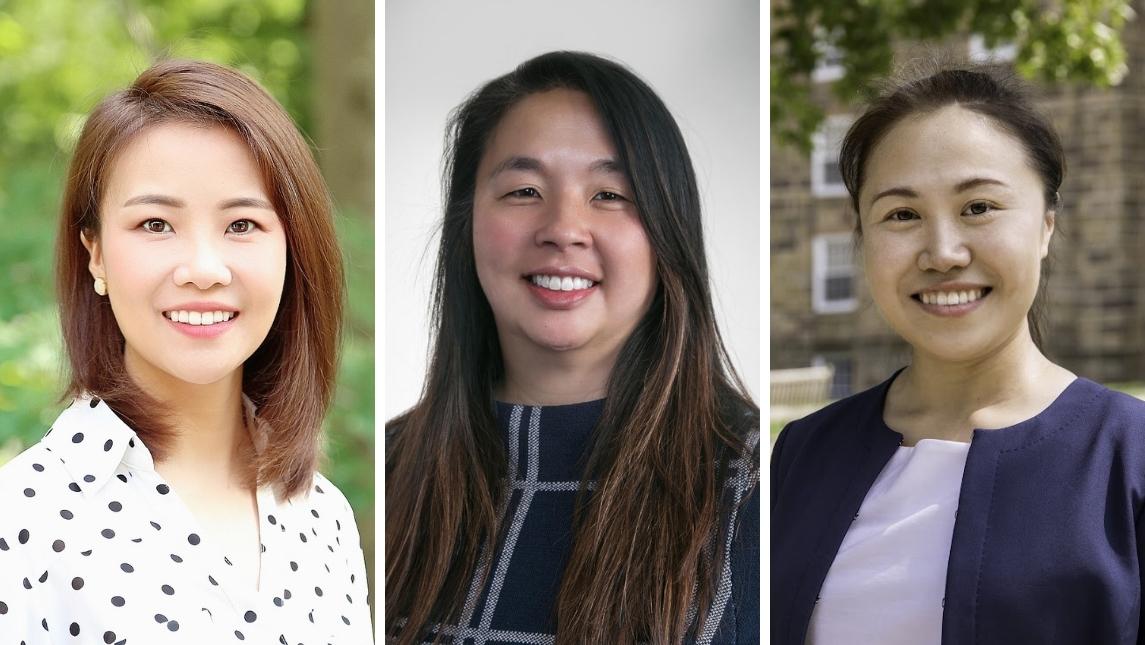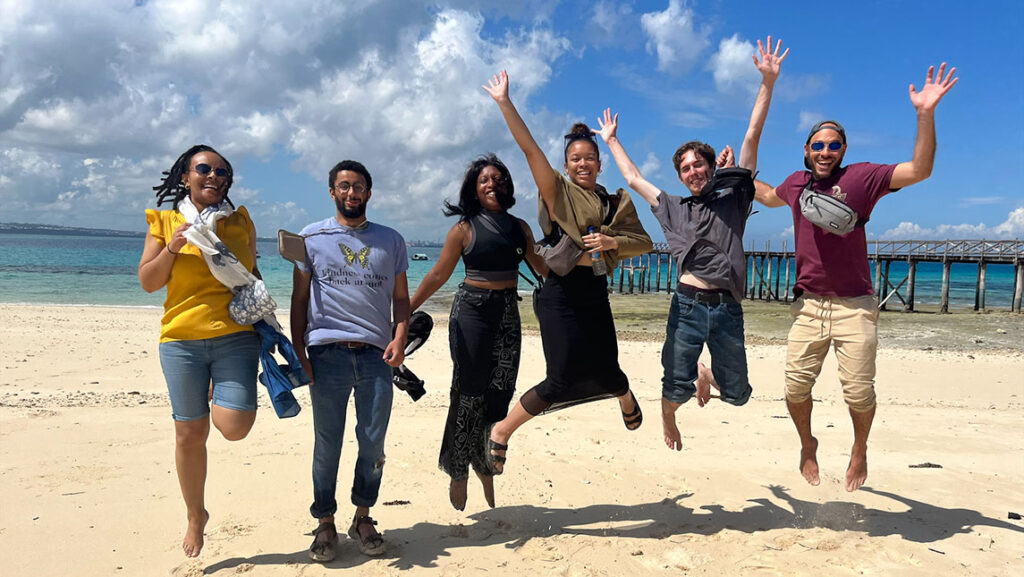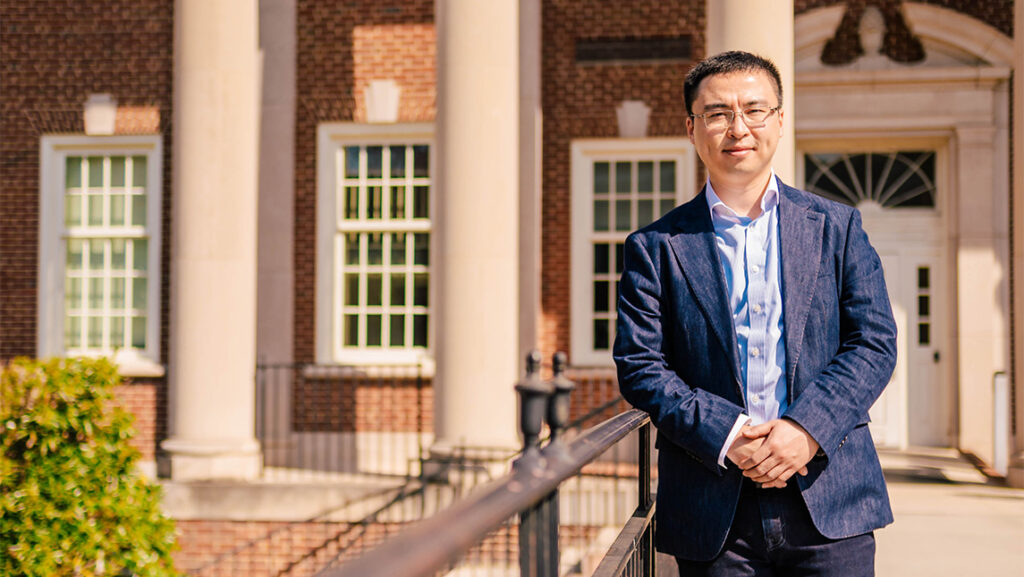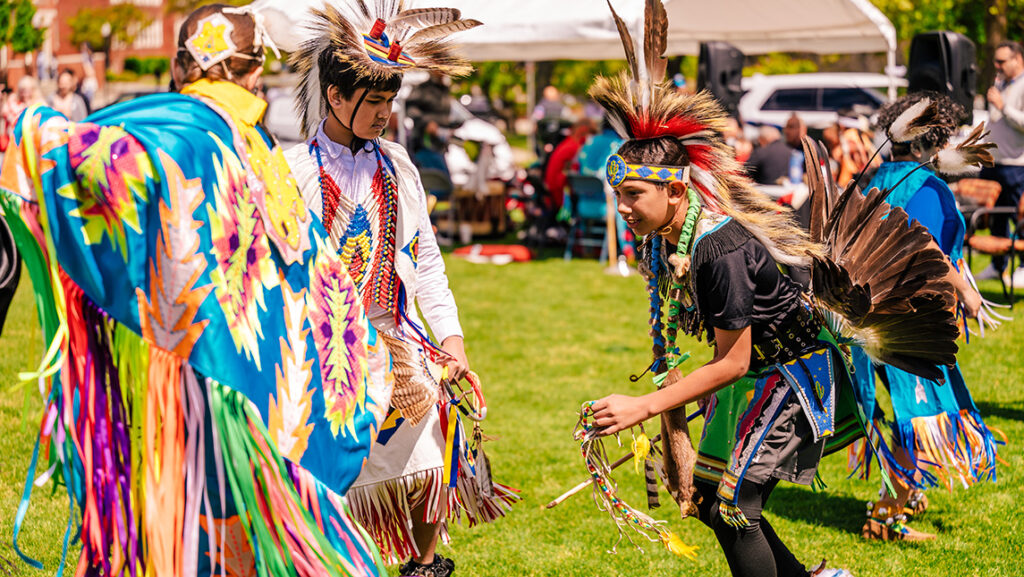
As the UNC System Asian and Pacific Islander Caucus (APIC), https://apicunc.org/, celebrates its first anniversary this month, leaders of UNC Greensboro’s chapter of the Caucus also reflect on their heritage in honor of Asian American and Pacific Islander (AAPI) Heritage Month.
Each May is designated as a time to commemorate the achievements and contributions of people of Asian and Pacific Islander descent in the United States and provides the opportunity for all Americans to learn about and embrace AAPI history and culture.
Following the Atlanta shootings in March 2021, former UNCG Professor and Faculty Senate Chair Dr. Anthony Chow felt he could no longer remain silent about the racism and discrimination people of Asian and Pacific Islander descent face in their daily lives. With the goals of promoting awareness, providing education, and offering support, Dr. Chow began APIC with the hope of uniting API faculty and staff across the UNC University System. What started with 20 members has grown to over 300 in just one year, with UNCG being the largest and one of the most active chapters of the organization.
Heritage Is Who You Are
Jennifer Leung, associate budget director and co-chair of the APIC UNCG Chapter, is first-generation Asian-American. Her parents emigrated from Hong Kong to help run her grandfather’s Chinese restaurant right here in Greensboro.
“Growing up in the U.S., I looked different, ate different foods, used chopsticks at home. I was raised with this duality and wondered where I fit in. I wasn’t ‘American’ enough and I wasn’t ‘Asian’ enough,” Leung recalls.
After losing both her parents within the past few years, Leung has reflected back on the sacrifices they made to build a life in the U.S. “Heritage is knowing your background and where you came from,” she explains. “It’s also about the food!”
Ting Wang, assistant professor in UNCG’s sociology department and fellow co-chair, agrees that heritage is a part of who you are. “Heritage is in our blood, but we have to intentionally cultivate it. A person’s identity is both visible and invisible. It’s created by how people view you and how you view yourself,” she says.
Wang was born in China and identifies as Chinese. She feels strongly connected to her last name, a piece of her identity that felt disjointed when she took her ex-husband’s last name. “After my divorce, I really wanted my maiden name back. Now that I do, I feel more coherent both inside and out,” she says. “I’m very happy to be me again.”
Wang adds that how her children identify is equally important: “I want them to have pride in their heritage as Chinese-American.”
Dr. Michelle Hu, lecturer in UNCG’s chemistry department and vice chair and secretary of APIC, echoes that sentiment. “I’m Asian, but my daughter is Asian-American,” she says, “so I need to use my voice to make her feel proud to be Asian-American. I feel like people from other races are not aware of our culture, so we need to educate others more on AAPI cultures.”
Education Is Paramount
Hu believes education is the most important avenue to supporting the API community and fighting for racial justice. She describes herself as someone unlikely to speak loudly, but her advocacy efforts are focused on making a difference in smaller ways.
“I helped UNCG students establish the Asian Students Association and now serve as the faculty advisor. The student leaders will be giving lectures on API culture each month here on campus,” says Hu. “And I learned that the children at my daughter’s daycare aren’t learning anything about API history and culture [during AAPI Heritage Month], so I plan to volunteer to speak to them about Asian culture.”
Wang agrees that education is extremely important, though she focuses her advocacy efforts on research. “I just applied for a grant from the Department of Justice. My research would focus on ‘Anti-Asian Hate Crime,’ studying Chinese restaurants and how they’ve been affected since the pandemic began,” she explains.
While Hu and Wang work to educate others about Asian history and culture, they believe that the way people will truly understand and empathize with the API community is to simply “make new friends.”
“The best way to learn about a culture is to talk to people with different backgrounds and learn about their lives and perspectives. Be open-minded and ask questions; that’s how you learn where they’re coming from and why they’re doing what they’re doing,” says Hu.
Wang adds, “Entertain yourself with some Asian culture, such as cartoons or movies. There are a lot of options available.”
And for those of API descent, Leung encourages them to “reach out to your community and Asian peers. Share stories and ask questions. Join organizations, like PAVE NC, to access resources. We’re hoping to develop APIC into one of those resources for people.”
Uniting the Community
While Covid and budgetary constraints have made it difficult for APIC members to get together in person, Wang says they look forward to the future: “We have plans to increase engagement and interaction with members moving forward.”
If you’d like to get involved with UNCG’s chapter of APIC, please contact Ting Wang at t_wang5@uncg.edu.
Story by AMBCopy, LLC


